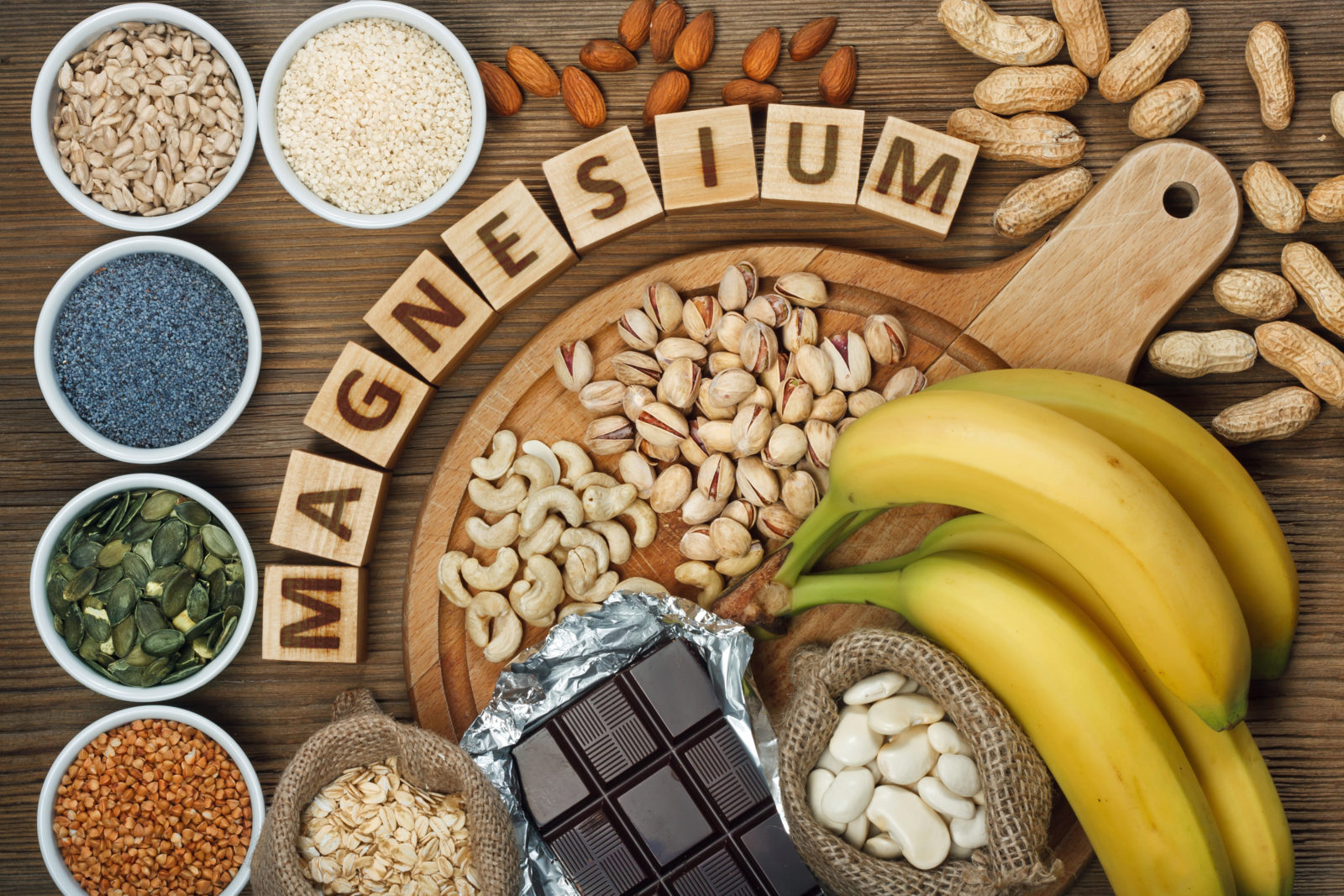Magnesium is the fourth most abundant mineral in the body, and is involved in over 600 metabolic reactions. It acts as an enzyme co-factor for many reactions, regulates energy production and ATP, stabilizes DNA structures, helping avoid mutation, helps regulate NMDA receptivity preventing unnecessary nerve stimulation. NMDA plays a role in learning, memory, and brain development. Magnesium is also involved in electrolyte balance with calcium, sodium, and potassium. It helps in proper functioning of the heart. Sources include pumpkin seeds, cooked leafy greens, flax seeds, black beans, almonds, cashews, dark chocolate, and avocado.
Quick Facts
-Fourth most abundant mineral in the body
-Involved in over 600 metabolic reactions
-Acts as an enzyme co-factor for many reactions
-Regulates energy production and ATP
-Stabilizes DNA structures, helping avoid mutation
-Blocks a certain amount of NMDA receptors in nerve cells, which prevents unnecessary nerve stimulation that may damage or kill nerve cells. NMDA plays a role in learning, memory, and brain development
-Involved in electrolyte balance with Calcium, Sodium, and Potassium. Electrolytes are used to carry electrical charge when dissolved in fluid in the body.
-Helps in proper functioning of the heart. -When copper enters heart cells, they are stimulated to contract, whereas when magnesium enters, it causes the heart cells to relax. Magnesium acts similarly in the muscles.
-Required for the sodium-potassium pumps in our cell membranes to work. They generate electrical charge for cell signalling.
-Adjusts amount of cholesterol produced and released into bloodstream [67]
RDI
Males 19 – 30 yrs: 400 mg
Females 19 – 30 yrs: 310 mg
[128]
Deficiency
-Muscle twitching and cramps, mental disorders, osteoporosis, fatigue and muscle weakness, high blood pressure, asthma, irregular heartbeat [185]
Toxicity
-Upper limit from supplements is 350mg per day
-Food doesn’t cause toxicity
-Supplements like large laxative doses providing about 5,000 mg/day can cause toxicity. Symptoms include diarrhea, nausea and abdominal cramping as well as fatigue, muscle weakness, low blood pressure, urine retention, respiratory distress, cardiac arrest [186]
Sources
Pumpkin seeds, cooked leafy greens, flax seeds, black beans, almonds, cashews, dark chocolate, avocado


